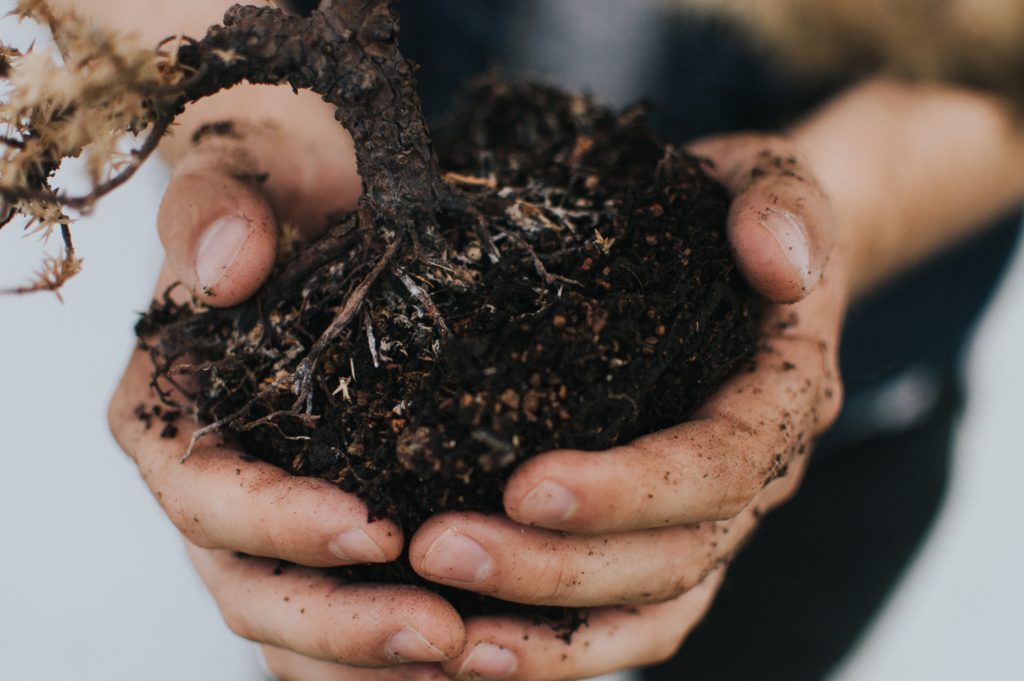 Last Saturday, NCIPL Director Susannah Tuttle and I had the opportunity to attend a conference entitled “Waste Not: Living the Low Carbon Life” in Raleigh. Leaders in the industries of food waste, composting, and soil regeneration gathered with church and community members to discuss the power of composting and reducing food waste. Friends, it was incredible and we left inspired.
Last Saturday, NCIPL Director Susannah Tuttle and I had the opportunity to attend a conference entitled “Waste Not: Living the Low Carbon Life” in Raleigh. Leaders in the industries of food waste, composting, and soil regeneration gathered with church and community members to discuss the power of composting and reducing food waste. Friends, it was incredible and we left inspired.
First, we learned that one third of food produced all over the world is wasted, with 40% of food grown in the United States being thrown away. The vast majority of this food ends up in landfills, where it decomposes and contributes to global climate change through significant greenhouse gas emissions.
After confronting these difficult statistics, we were presented with a truly hopeful opportunity. While food waste contributes significantly to global climate change, composting food waste is among the most significant climate solutions that there is! Using compost returns much needed carbon to our depleted soils—and the carbon just keeps coming. Compost continues to sequester carbon from the atmosphere long after it has been applied. In other words, the carbon in our atmosphere isn’t bad: it’s just misplaced. Reducing our food waste, and producing/using compost, all present significant climate solutions!
Noel Lyons, President of McGill Compost, gave the keynote address at Waste Not. He spoke of his company, which focuses on commercial composting, in addition to the connection he has felt to the land since his childhood in Ireland. Then, he gave suggestions regarding how to begin our own composting/waste reduction journey. We’d like to share some of those suggestions with you today:
- Compost your food waste at home! This can be done with a small kitchen compost or a larger backyard set-up. If you’re in the Raleigh/Durham or Asheville areas, you can also compost through CompostNow! For the price of 1 cup of coffee a week, the folks at CompostNow will pick up your food scraps and transform them into rich compost. Choose to have the finished product delivered to you for use, or donated to local farmers and organizational partners!
- Use compost! It is only by using compost that carbon is returned to the soil, and compost is not just for gardens! Consider spreading compost through your yard, on your church grounds, or at your child’s school. The folks at the NC Composting Council can help with resources and questions.
- Educate your friends, family, and faith community about the power of composting! Look to Zero Waste Church for ideas on how to get your faith communities involved.
This Wednesday, December 5th, is World Soil Day. We hope that sometime this week, you have the chance to breathe in the smell of the earth, cup the dirt in your hands, and give thanks. We hope you’ll consider composting in recognition of the world’s soils and their life-giving and regenerative power. We also hope you’ll take some time to learn more about Composting, Regenerative Agriculture, and Food Waste Reduction as solutions to climate change.
We know that climate change impacts the poorest among us most severely. This holiday season, let’s take steps to love our neighbors and all of creation more holistically. Thank God for the soil!
Sarah Ogletree
NCIPL, Sacred Foodscapes Program Intern
